As politicians continue to bicker about same-sex marriage equality, it's hard to believe that public support has risen from about 40 per cent to roughly 70 per cent in little over a decade - a dramatic shift showing increasing acceptance of non-heterosexual identity.
Australia hasn't always been so accepting, of course...
Our first laws came from England, as you’d expect
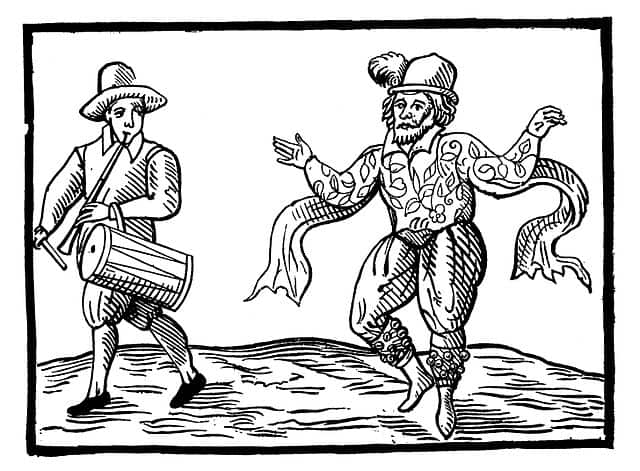
Way back in 1533, the English Parliament passed the Buggery Act, defined in courts as outlawing anal sex and bestiality - with the maximum penalty of death. When the English arrived Down Under 250 years later, those anti-gay laws came with them and not much changed when Australia became a nation in 1901.
In fact, it wasn’t until 1949 that Victoria made a giant leap in liberalising things by downgrading the punishment for anal sex from the death penalty to 20 years in jail.
Public opinion began to turn... slowly
By the late-'60s, there were steps to address the harsh legal climate, beginning with the 1969 founding of the ACT Homosexual Law Reform Society in Canberra and followed by the establishment of the Campaign Against Moral Persecution (CAMP) and Society Five in the early 1970s.
Calls for reform escalated in South Australia when Dr George Duncan drowned in the Torrens River after being thrown in by a group of men suspected of being Vice Squad officers patrolling a gay beat. In 1972, the state softened the laws on gay sex, and decriminalised male homosexual acts three years later (equalising the age of consent in the process).
The ACT followed suit in 1976, albeit with a higher age of gay consent, but things weren’t as pleasant in the neighbouring state of Victoria, where police raided the home of a gay couple, who ended up deported to South Australia. Over the course of the 1976-'77 summer, Victorian police arrested more than 100 men in a massive operation that involved entrapment at gay beats.
A protest march led to an annual celebration
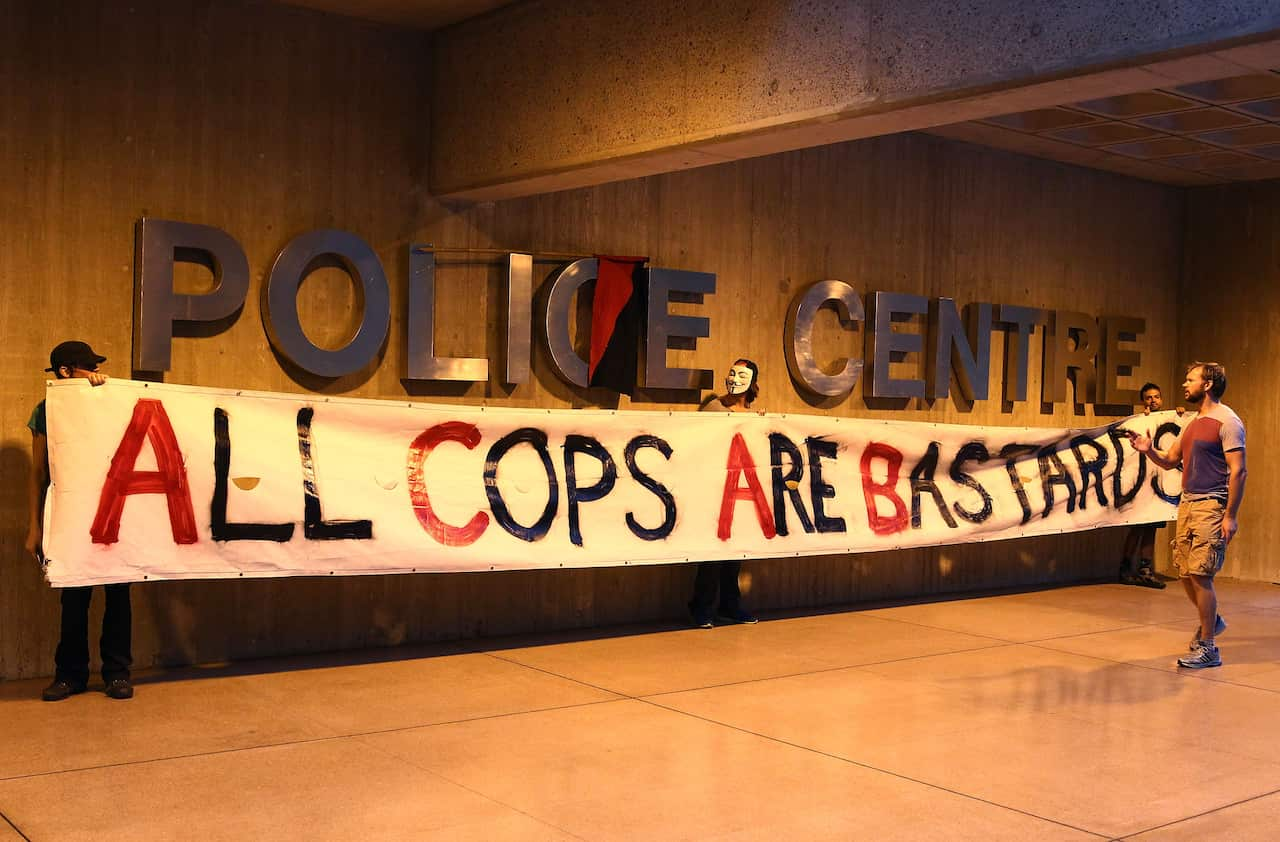
In a signature year for Australia’s LGBT+ community, 1978 saw the first Gay and Lesbian Mardi Gras Parade. New South Wales police arrested 53 people and assaulted many more. Reform kicked into gear from 1980-'84, as Victoria, the Northern Territory and New South Wales decriminalised male acts of homosexuality and set the age of consent to 18. Western Australia and Queensland waited until 1990 to pass their own decriminalisation laws.
The federal government got stuck in
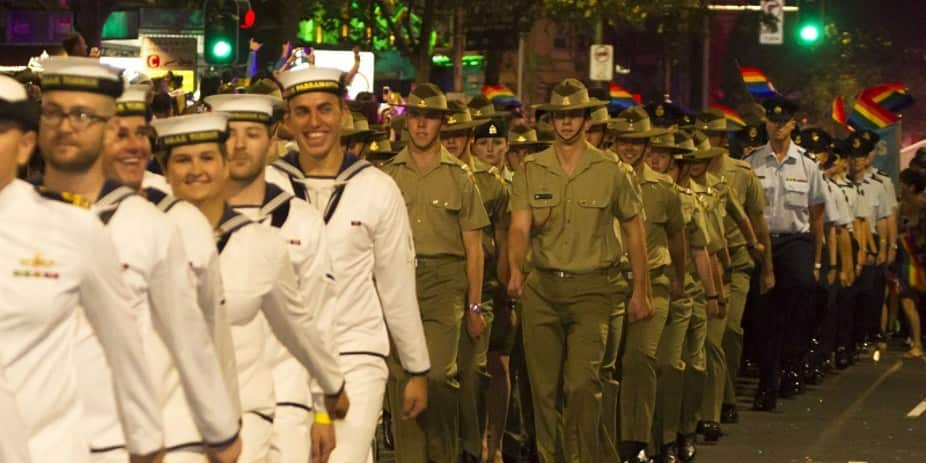
The year 1992 was one of mixed news. On the one hand, “gay panic” was first used as a successful defence in a murder trial with the accused acquitted. On the other hand, the Keating government removed the ban on gay men and women serving in the military.
Two years later, Labor passed the Human Rights (Sexual Conduct) Act, which trumped all state and territory legislation relating to sexual acts between consenting adults. Finally, in 1997, Tasmania decriminalised homosexuality. The age of consent is now equal across the country, mostly at 16.
Marriage goes into lockdown
More mixed blessings in 2004. The ACT allowed same-sex couples to adopt children, but the Howard government changed the Marriage Act to define it as the “union of a man and a woman to the exclusion of all others, voluntarily entered into for life”.
Later plans to ban same-sex adoption from overseas were thwarted by Labor’s 2007 victory, which also saw the passing of legislation that removed discrimination from 85 federal laws relating to areas such as tax, veterans affairs, social security and health. NSW eventually allowed same-sex couples to adopt in 2010, followed by Tasmania in 2013, Victoria in 2015 and Queensland in 2016.
Two steps forward, one step back
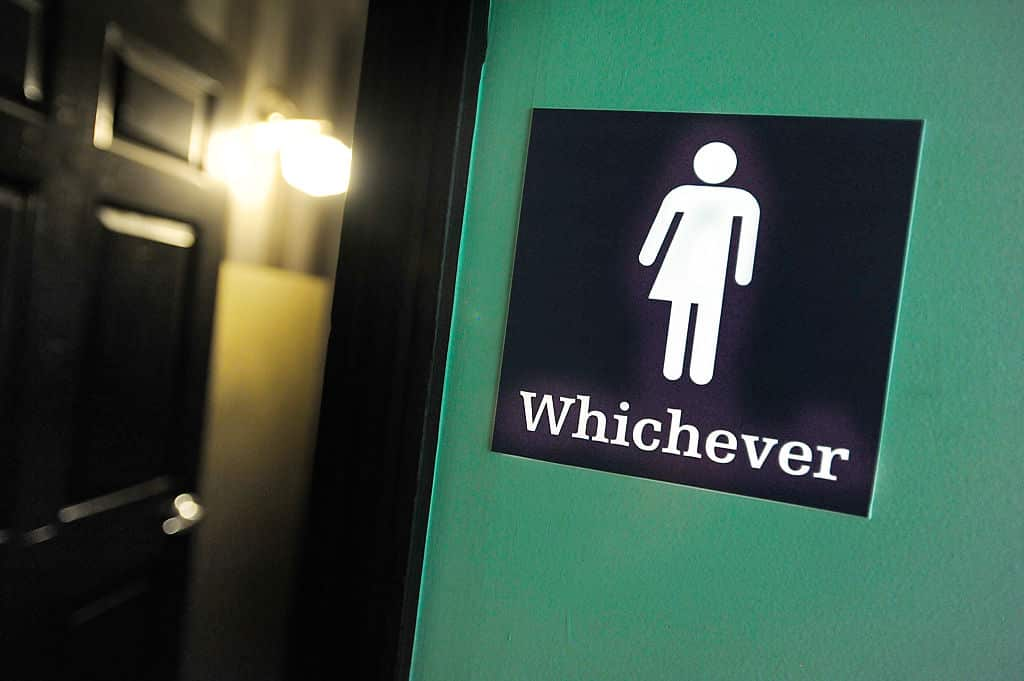
Transgender issues were firmly on the agenda by 2011, when the Gillard Labor government introduced legislation to add an “X” gender to passports and allow people to officially declare their gender irrespective of medical intervention.
Two years later, transgender children no longer required Family Court approval to access puberty blockers. It seemed as though Labor would be all for same-sex marriage, especially when the government started providing Certificates of No Impediment to Marriage so that gay couples could get married overseas, but a battle was brewing.
The ACT passed same-sex marriage legislation in 2013, but the High Court knocked it back, saying states and territories can’t pass their own laws on the matter. (On the side of good, Labor legislated an amendment to the Sex Discrimination Act making it unlawful to discriminate against lesbian, gay, bisexual, transgender and intersex people – with exemptions for religious organisations.)
Political leaders on the right side of history (or the Right side of history)
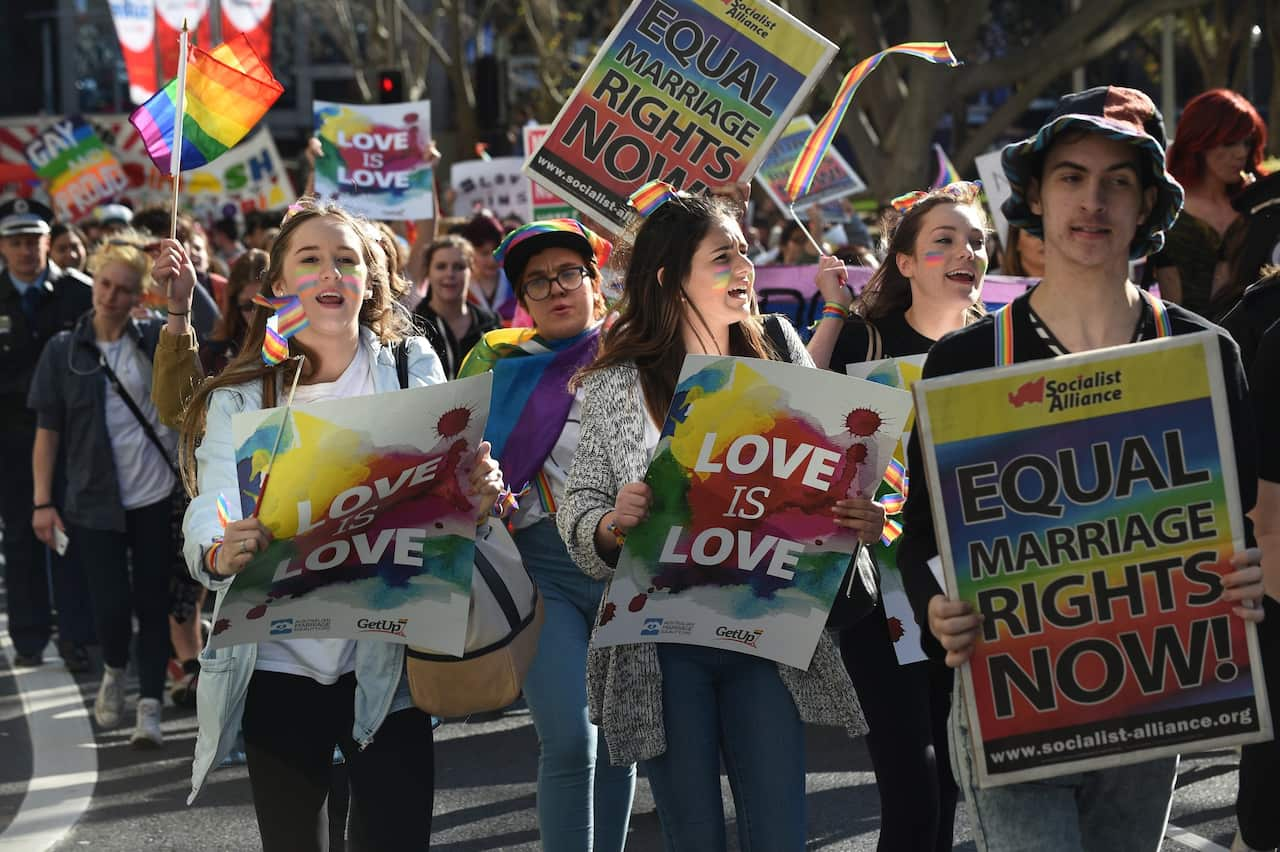
Same-sex marriage is a political football. In 2015, the Abbott Liberal government came up with the idea of a national plebiscite on the subject, pleasing no one and putting things off for future leaders.
Hopes of a change were raised when Malcolm Turnbull took the helm, but his deal with the Coalition right has apparently stopped him from enforcing his own support of same-sex marriage. (Labor has now committed to introducing marriage equality when they get back into power).
At a state level, 2016 saw apologies from the Victorian premier, Daniel Andrews, for the state’s prior anti-gay laws, and from NSW’s government and police for the arrests and violence of the inaugural Mardi Gras Parade in 1978.
What’s next? That’s up to us.
Watch the US struggle for equal rights in When We Rise - the 3rd episode airs Saturday at 8:30pm on SBS. You can catch up with the first episode right here:
